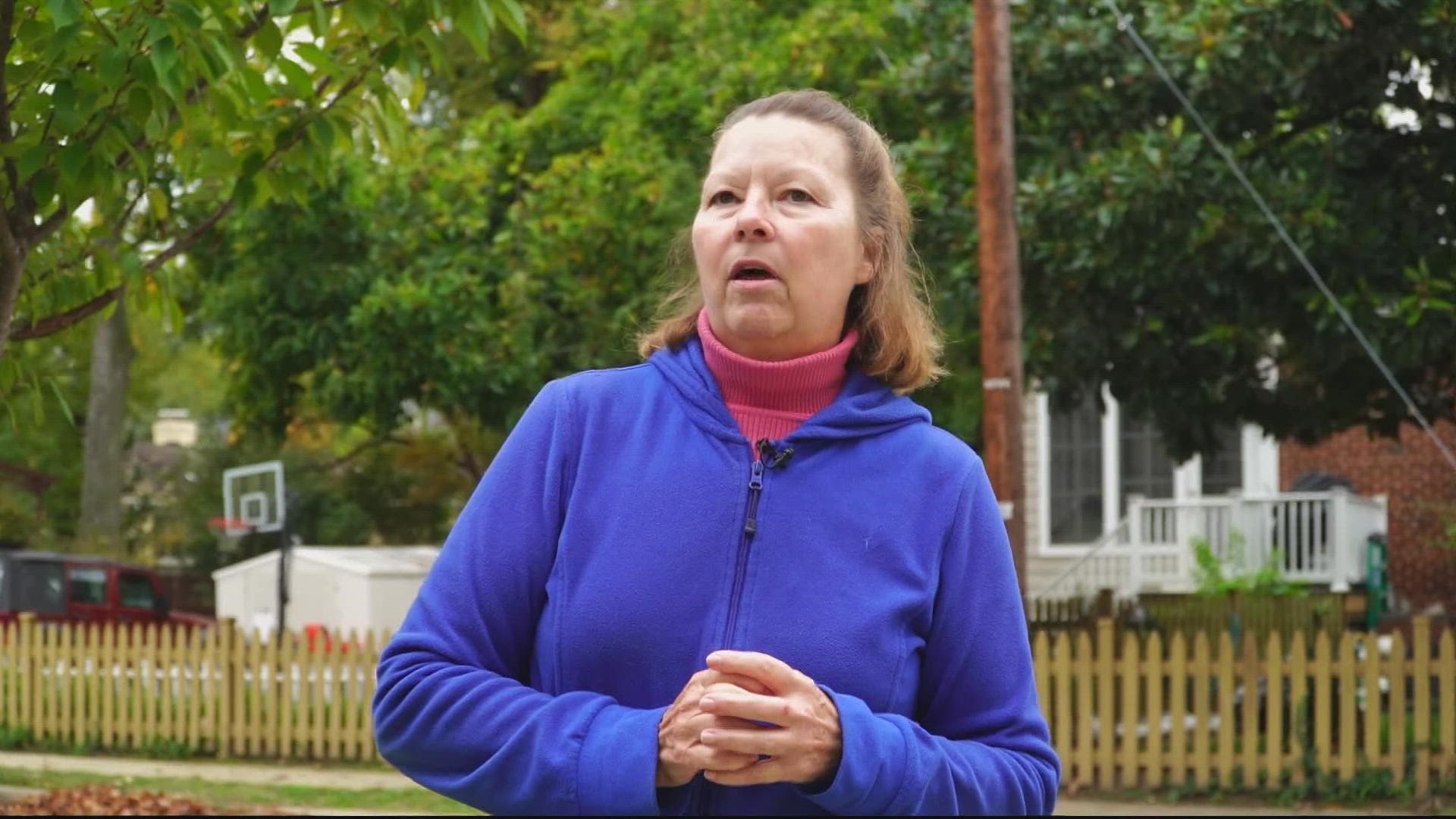WASHINGTON — Heavy snow and rain, flooding, stronger hurricanes, climate change and extreme weather is impacting every one of us.
In the DMV, we are all vulnerable to flooding and other catastrophic changing weather patterns. Even prospective homebuyers are not immune.
Now, there's an organization that brings climate change information to the home buying process so you can protect yourself and your biggest investment asset.
Ms. Miller and her husband moved from their Herndon home of 25 years to the community of Del Ray, Virginia. The couple thought they were far away from the flood zone area of Alexandria, Virginia.
"We've had four floods here," Ms. Miller said. "We had two in 2020. After the first in 2020, we rebuilt a second time. And literally, it was a week after we had just put everything back, we flooded again in the September flood."
The Millers were fortunate their homeowner's and flood insurance covered some of the rebuilding costs. They made modifications to protect their home from future floods.
"You can see where we elevated the mulch. It still would spill over, especially with the waves, so, we have started the sandbags around here," Miller said.
Their story highlights the concerns of climate change and increasingly extreme weather for homebuyers.
Dr. Ed Kearns with First Street, a non-profit that makes climate risk data for every known address in the U.S. He worked as the chief data officer with National Oceanic and Atmospheric Administration (NOAA) for 12 years.
"One of the things coming to the DMV area is, ahh, ahh, sea level, right, everybody is aware of this. And, what it's doing again is changing that kind of high frequency flood risk, ahh, that you see from high tides," Kerns said.
In addition to sea level rise, heavy rain is a major factor to flooding in our region.
Dr. Kearns says the data First Street offers can predict what climate changes will not just be today, but over the next 30 years. Even realty companies like Redfin purchases the data to post in it's home listings.
"And what they have found is that after being exposed to this information about what the environmental risk are, what the climate change risk are, that their customers' behavior is changing," Dr. Kearns said. "They're starting to bid on houses that have lower risks."
But FEMA tells WUSA9 about a third of all flood claims come from outside of flood zones.
"If you look around your home and your neighborhood, see lots of paving going on, just remember, if it rains that water has to go somewhere," FEMA Deputy Director Jeff Jackson said. "And, so, you're probably seeing your risk increase right before your eyes based on that development."
Jackson says the agency uses modeling and data sets to see where climate change has increased the risk of flooding.
"The statistic that we use is that an inch of water can cause as much as $25,000 in damage. And, we've seen it time and again, small amounts of water, one, two, three inches that cost tens of thousands of dollars to repair," Jackson said.
Since 1980, flooding has cost the United States $1 trillion, this number has been adjusted for inflation.
The number one thing FEMA's deputy director wants you to know, your homeowner's policy does not cover you flood.
So, make sure to protect yourself by purchasing flood insurance through FEMA's National Flood Insurance Program.
Watch Next: How climate change can affect your health

